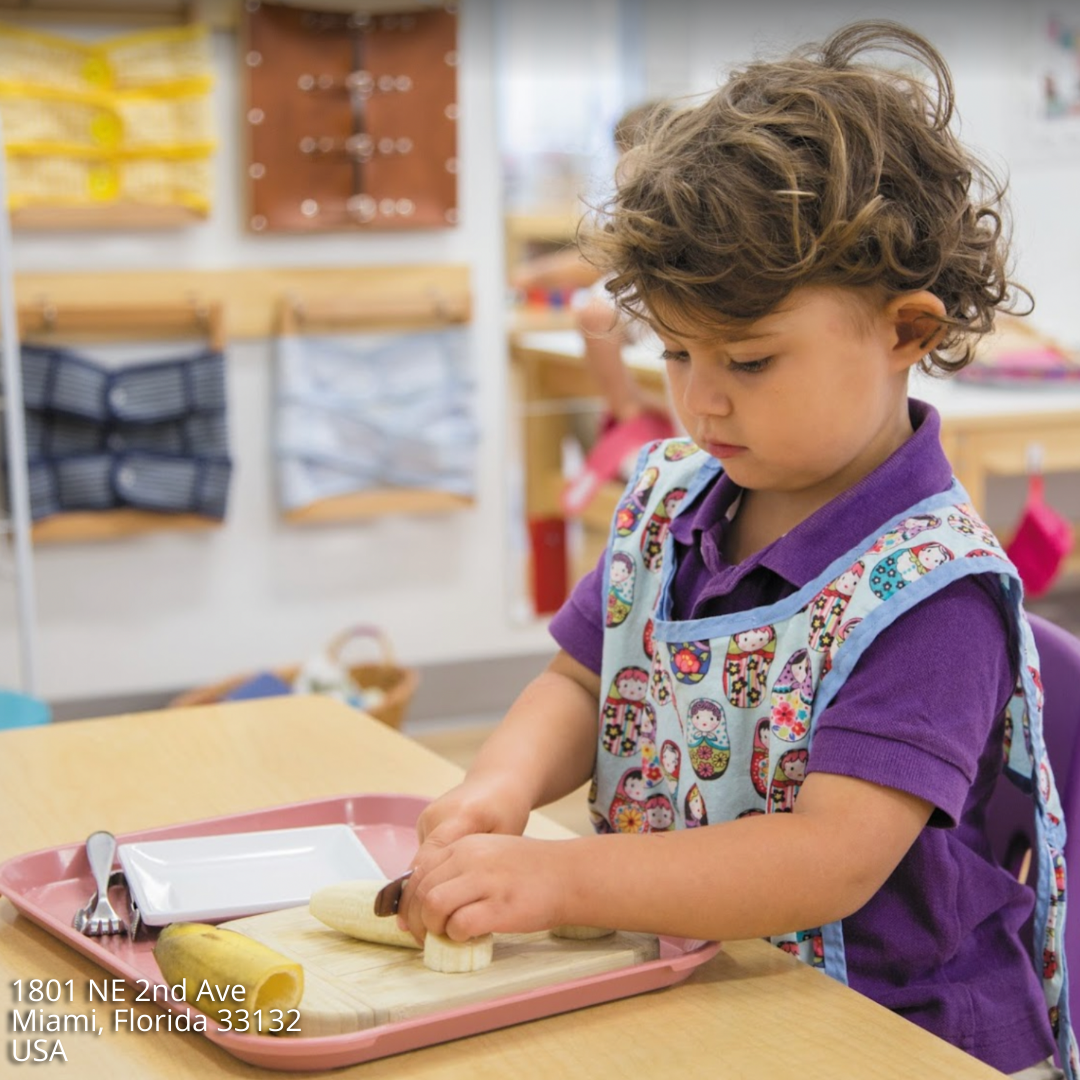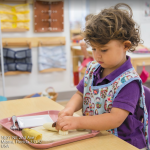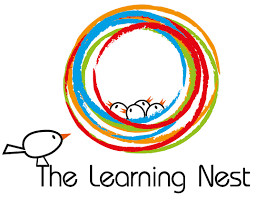The Learning Nest is a Miami-based Montessori bilingual preschool with a curriculum structure to enhance your child's development through practical activities.
Practical subjects like arts, gardening, music, and crafts are undeniably enjoyable pastimes for children and should be part of any curriculum. These subjects can boost a child's interest and develop his or her artistic potential, amongst others.
Sadly, most preschools in Miami and all over the country have reduced arts in their school curriculum, especially at the kindergarten level. The inclusion of music, painting, theatre, and others is rapidly dwindling in classrooms.
This is a major issue as children should be introduced to practical knowledge rather than depending solely on their bookish knowledge from an early age.
One reason for this is that everyone learns differently. When you introduce kids to arts, gardening, crafts, and similar practical subjects, you're investing in their cognitive, physical, and social development.
Below are some of the roles practical subjects play in the development of a kid, according to the experts at The Learning Nest (a Montessori preschool in Miami, FL).
Benefits Of Practical Subjects In Preschool And Kindergartens
Here are some reasons why kids should be exposed to these practical subjects at an early age:
1. It Improves Their Socializing Skills
Participating in gardening, art, and similar practical classes with other kids allows children to interact while sharing common interests.
Since pupils must collaborate to accomplish common goals, group classes bring about peer connection and communication, which fosters collaboration, thus enhancing their socializing skills.
Learning to play an instrument also offers the same benefit. Music groups and clubs in a preschool in Miami can help children learn vital life skills such as teamwork, discipline, leadership, and interaction.
When shared between a parent and a child at home or in a homeschool environment, these activities can also strengthen their bond.
2. Improves Self-Confidence
A child's self-confidence is boosted through practical activities like arts, gardening, and craft activities that imbue a sense of accomplishment and pride.
For example, when a child plants and waters a seed and it grows out, it gives them a unique sense of accomplishment.
Similarly, kids grow in confidence as they learn art and music skills via repetition and practice.
According to studies, when kids participate in artistic or practical activities with their peers and give each other constructive criticism and praise, the feedback they provide each other develops self-esteem.
If a child's instrument is being played too loudly or too quickly, he will need to adjust. These help them comprehend and grasp their unique role in a broader group.
3. It Builds Their Motor Skills
Since most arts and crafts involve moving fingers and hands, they aid in developing motor skills.
Simple movements such as holding a paintbrush and coloring with pencils help to strengthen and control muscles. These activities improve a kid's skill and agility.
For example, playing a musical instrument requires hitting the right string at the right time to stay in tune. This will make the child develop a strong response time and enhance their hand-eye coordination.
4. Promotes Creativity in Kids
This may seem like a no-brainer, but the benefits of increased creativity will be felt in many areas of your child's life. When children are encouraged to express themselves and take risks while creating art, playing music, or planting, they develop innovative skills.
Those skills can open doors later in life. 72% of employers say creativity is the most important skill to look for when hiring new employees.
Engagement in practical subjects can help a kid think more critically due to the creativity involved in their instruction.
In a notable case, a study of 3-4 year-olds learning to play the piano found that those who received music instruction performed much higher on qualitative reasoning exams than those who did not.
Qualitative reasoning is a precursor to logical thinking, abstract thinking, and problem-solving, all of which are required for brain function.
5. Enhances Cognitive Abilities
Do you want your children to remember their homework, and assignments, where they put on their shoes or clean their teeth before going to bed? It's possible that engaging in these practical subjects can help.
For instance, music participation at a young age has been demonstrated to boost memory in studies. Even adults can benefit from listening to music in terms of memory.
Practical activities like crafts and painting allow kids to learn about new colors, shapes, different figures, and patterns. Learning to play the guitar, craft jewelry, and other activities aids in the development of mental visualization and memorization of complicated designs.
6. Better Retention of Information
Using your hands to learn often leads to more embedded knowledge and rapidly recalling information for extended periods.
The reason for this is that the brain tries to memorize words when you study in a theoretical, text-based manner.
However, when you learn in a practical setting, you remember activities and scenarios that are easier for the brain to remember.
Additionally, kids find practical experiments more fascinating than normal class lessons. So when they grasp the concept and understand how something works via practice, it is retained in their brain for a longer time.
7. Enhances Academic Performance
Children's brainpower can be boosted by exposing them to music, arts, and other practical subjects. Music activates areas of the brain linked to academic success, such as reading, maths, and emotional development.
Students in a preschool in Miami that are exposed to practical subjects benefit academically far more than those who are not.
According to A study by Americans for art, students who participate in practical activities like art are four times more likely to get acknowledged for academic performance.
They are also four times more likely to enter a maths or science fair and are three times more likely to get an award for good attendance at school.
Aside from the academic benefits, these subjects improve a kid's interest in the classroom. It encourages pupils to stay in school, boosts their enthusiasm, and improves their attitudes and attendance.
In advanced classes, low-income students who participate in the arts are more than twice as likely to graduate and have a five times lower dropout rate than their counterparts who do not participate in arts and other extracurricular activities.
It's important to consider music and crafts as an integral element of your child's education rather than an extracurricular activity.
8. Enhances Decision-Making Abilities and Self-Expression
By confronting and addressing practical challenges like painting, learning an instrument, gardening, and others. Kids are able to develop a problem-solving mindset, which will benefit them in the future.
Similarly, children would express themselves in a positive, practical, and meaningful way by participating in these creative endeavors.
Allowing a child to paint, for instance, allows him or her to provide a unique perception of how they see things.
9. Language and Literacy
According to a 2016 study from the University of Southern California's Brain and Creativity Institute, extracurricular activities like music helps children's brains develop faster, especially in language acquisition and reading skills.
Painting, gardening, and similar practical activities provide an opportunity for language development for young children. As they produce art, toddlers learn vocabulary for colors and forms.
10. Engenders Self-Discipline
Kids learn discipline and devote themselves to something through engagement in these practical subjects. For example, learning to play an instrument teaches children the importance of deferred gratification.
The learning curve for the violin, for example, requires that you first learn how to hold the violin, how to hold the bow, and where to place your feet before you can make a single sound.
Playing an instrument encourages children to endure hours, months, and even years of practice to achieve specific objectives, such as performing with a band or learning a solo piece.
The same applies to gardening. When kids plant a seed and have to water it every day, they learn devotion and patience.
What You Should Do?
Since you now know the importance of integrating these activity-based subjects into the curriculum for preschool and kindergarten students. The question is, how do you ensure your child is exposed to these activities that would help them grow?
The answer you seek is The Learning Nest, a Montessori bilingual preschool for children ages 3 to 6 years old. The Learning Nest complements your child's education with areas such as art, languages, music, gardening, and other extracurricular activities.
Also, if you’re a parent looking to expose your child to healthy and beneficial activities at home, the TLN curriculum is just what you need.
It is specifically structured to stimulate inquiry, discovery, and creativity, at the same time, helping the child develop communication, teamwork, organization, and problem-solving abilities.
The children work and experiment with various materials to produce projects based on their interests, experiences, ideas, and interactions with their surroundings. These endeavors are portrayed in the form of painting, construction, theatre, music, play, and other art forms.
If you live in Miami or are looking for a preschool near Miami, consider enrolling your child in The Learning Nest.
You can call them at (786) 796-8563 to learn about their exceptional curriculum or visit their website to learn more.
Additional Information about the City, Miami, FL.
Miami is the 44th-largest city in the United States and the core of the nation's eighth-largest metropolitan area. The Miami metro area is by far the largest urban economy in Florida and the 12th largest in the United States. Miami was named in 1896 after the Miami River, derived from Mayaimi, the historic name of Lake Okeechobee, and the Native Americans that lived around it. The city’s nearby attractions include the Wynwood Walls, Zoo Miami, Dolphin Mall, and the Bayside Marketplace.


































